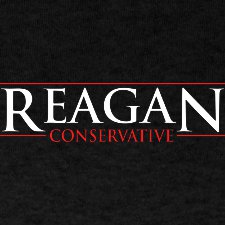Moving Forward in 2016 and Beyond
by Steve Parkhurst
Now that the pageantry of the Presidential nomination process is behind us, it is time to focus on the November elections and the future of our movement and our party.
Twenty years ago this August, Jack Kemp accepted the nomination for Vice President at the Republican convention in San Diego. In accepting the 1996 nomination, Kemp said, “The purpose of a truly great party is to provide superior ideas, principled leadership and a compelling cause.” Kemp continued, “Our convention is not just the meeting of a political party; our convention is a celebration of ideas. Our goal is not just to win, but to be worthy of winning.”
A lot has happened in the last twenty years. The global landscape is remarkably different. After another bruising Presidential primary season, one unworthy of our country and our party, it is time to move toward November united and ready to do battle.
The presidential contest is but one race on the ballot come November. Many people will not be happy with the choice at the top of their ballot. Over the next five-plus months, perhaps feelings will change and a vision will be accepted. Up and down ballots across America, citizens will choose members of the United States Senate and Congress, members of state legislatures or assemblies, and many of the leaders of tomorrow.
In the wake of the presidential contest which will leave some people bitter and disappointed, it is important to identify and support the candidates for other offices who offer the “compelling cause” that our party represents. There are many great candidates worthy of your support.
These candidates view economic growth and opportunity as the best path out of poverty. The candidates rebuke the idea that redistributing income and wealth is the way forward. These candidates are adopting the philosophy of Arthur Brooks to “fight for people, not against things.” These candidates see Washington D.C. not as a reasonable partner who can assist people and communities to find local solutions, but instead as the albatross that it has become, one which stifles innovation and advancement with regulations and obstacles.
As we seek, identify and support candidates who want to embrace this vision of localism, it will be important to assure that we have intelligent, innovative thinkers and policy entrepreneurs ready to work as we devolve power back to states, counties and cities, along with other localities. It will also be vital to have neighborhood healers identified and at the ready, these are the people and organizations who can replace functions previously dominated by governments, with tested methods that get results.
This is the heart of what Alexis de Tocqueville observed about America when his observations were published back in 1835: An America where neighbor looked after neighbor and associations and churches handled many of the tasks too burdensome for any one neighbor, with a speed and efficiency that would be foreign to the bureaucracy of today.
This April, Governor John Kasich presented us with an optimistic vision in which "America’s supposed decline becomes its finest hour, because we came together to say ‘no' to those who would prey on our human weakness and instead chose leadership that serves, helping us look up, not down.”
This is the sort of vision we now need going into November. This is not the time to buy into the doom and gloom scenarios. This is the time to go into communities that are different from ours and really engage people about the American idea. Some of these might be communities where Democrats own the landscape and Republicans never dare enter. When we never show up to present our case, it is that much easier for the Democrats to label us however they choose. We need to start laying the foundations of trust in these communities right now, today.
The challenge before us now is to put our “compelling cause” on full display for the nation to see. This can be done, and it can be done by each one of us, back home, in our own communities and neighborhoods. Speaker Paul Ryan is a model for us to follow. The Speaker is putting forth pragmatic solutions for the America of today, and doing it with a manner consistent with our timeless principles.
If we had met the challenge of 1996 in a manner similar to that presented above, perhaps fewer of us would be disappointed by what happened in the presidential primary this year, and maybe even fewer of us would be as shell-shocked.
A party “worthy of winning” will take up the Jack Kemp challenge twenty years later and finally start to do the work necessary to advance the American idea.




